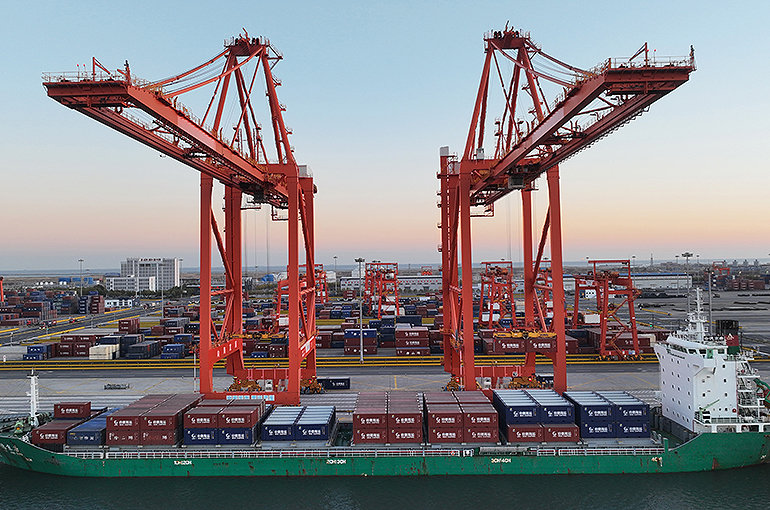 China’s Opening-Up Is Vital Driver of Globalization, Experts Say
China’s Opening-Up Is Vital Driver of Globalization, Experts Say(Yicai) Dec. 4 -- China’s opening-up, the set of economic reforms and measures taken by the government to integrate the country’s economy with the rest of the world, is playing an important role in promoting globalization, according to experts.
China’s commitment on opening-up is an important factor powering globalization, Shang Fulin, former chairman of the China Securities Regulatory Commission, said at the Understanding China Conference held in Guangzhou last weekend.
Co-hosted by the China Institute for Innovation and Development Strategy, the Chinese People’s Institute of Foreign Affairs, and the Guangdong provincial government, the gathering drew more than 600 guests from over 30 countries and regions.
The development of contemporary China is the result of unilateral opening-up and China needs to do more of it, said Zheng Yongnian, chairman of the Guangzhou Institute of the Greater Bay Area. China is the largest single market in the world so based on the logic of capital, it has the opportunity to attract funds, he added.
But geopolitical tensions and trade disputes have exacerbated concerns about global economic growth, Shang said, adding that market tensions affect the cross-border allocation of capital, international payment systems, and asset prices, which in turn will have an impact on global market stability.
As China becomes more interconnected with the international financial markets, it is also important to pay attention to the potential impact of external shocks on domestic financial stability, Shang pointed out.
The current international economic and financial situation, especially regarding geopolitics, has led to huge uncertainties and insufficient investor confidence, said Fred Hu, founder and chairman of Primavera Capital Group.
The rule of law should be at the core of improving China’s investment and business environment and ensuring the stability and predictability of the country’s policies and regulations to attract long-term capital inflows, Hu added.
It is necessary to reverse downward pressures on growth and improve China’s economic fundamentals, Hu said, adding that as long as the country continues to grow strongly, it will create investment opportunities that are difficult for other countries to match.
Hu also added that it is necessary to improve China’s relations with major trade and investment partners, and especially stabilize relations with the United States, as well as reduce geopolitical uncertainties.
The world is becoming multipolar but an international multilateral governance system has not yet been formed, Wang Huiyao, former counselor to the State Council.
Wang believes that China, the US, and Europe, the world’s three largest economies, could start with more frictionless areas to eventually reach a global consensus on key topics in various fields, including the digital economy, climate change, and space governance.
Editor: Emmi Laine